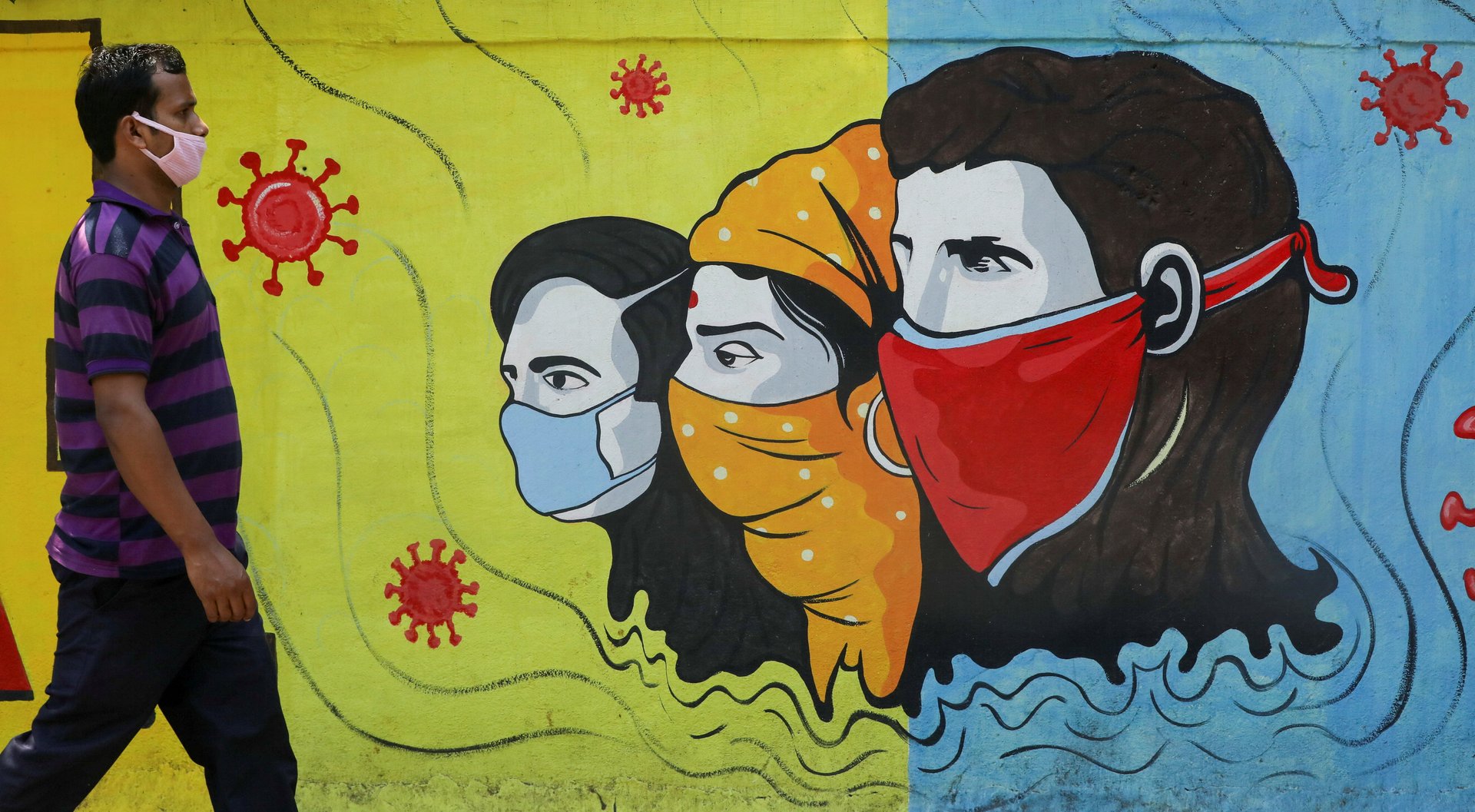In India, you can still be fined for being maskless alone in a car
Picture this. It’s a hot afternoon, you’re walking outdoors with a mandatory face mask on, sweat trickling down your face while you look for a short respite. You find it in an indoor cafe with sealed windows, where you are allowed to drop your mask for a cool drink and a blast of air conditioning.


Picture this. It’s a hot afternoon, you’re walking outdoors with a mandatory face mask on, sweat trickling down your face while you look for a short respite. You find it in an indoor cafe with sealed windows, where you are allowed to drop your mask for a cool drink and a blast of air conditioning.
In the context of what we know about how Covid-19 spreads—indoor spaces with poor ventilation are riskier than being outdoors—this overturns the logic behind mask mandates, potentially defeating their purpose. But it is precisely how things are playing out in Indian cities.
India’s mask mandate is now over 18 months old, and requires face coverings in all public places. By law, your car is also a public place and despite several pleas to different courts, the rule still applies to lone drivers. In Delhi, for instance, you can be fined 2,000 rupees ($27) if you’re found maskless in a public place. You can also be fined for not wearing a mask inside your car—even if you are alone.
In April and May, Delhi collected more than Rs50 crore ($670,000) in fines with the support of the police and civil defense volunteers, who have been enlisted to catch people flouting mask rules.
Mask rules give new power to civil defense volunteers
District administrators in Delhi have the power to recruit volunteers to assist in emergency situations. Since Covid-19 was declared a national emergency, such volunteers have been roped in for things like vaccination drives and enforcing mask mandates, at times blurring the lines between the police and the volunteers.
At present there are perhaps half a million such volunteers all over the country, and 55,000 in Delhi, though not all of these were recruited for pandemic duties.
For enforcing mask use, volunteers wear uniforms that are the same khaki color as police personnel, and carry books to issue fines. This is technically beyond their mandate, given that only the police or district authorities have the powers to issue such fines, but some district authorities have deployed these volunteers on their behalf. Even the Delhi Police has voiced unhappiness over the similarities in their uniforms, and has raised this issue with the Delhi government, according to reports.
But in Delhi, if your mask slips when you are in a public space, even if it is for things like wiping your face or drinking a sip of water inside your car, volunteers can accost you and demand a hefty fine.
Near the busy area where Delhi’s Indian Institute of Technology is located, volunteers have stopped drivers for “improper masking,” often with proof on their camera phones. Given the lack of data protection and privacy laws in India, such photographs fall into an ethical grey area. In at least one such case, the encounter turned into a fist fight.
In other cases, commuters have complained of harassment at the hands of these volunteers.
Civil defence workers were also allegedly caught collecting bribes in exchange for not issuing a hefty fine, and were arrested by the Delhi Police.
This tussle is not restricted to Delhi, and residents in cities like Bengaluru, Chennai, and Mumbai have complained of similar confrontations with municipal marshals and city police.
No universal vaccine mandates yet
Mumbai, which has vaccinated a significant proportion of its population, has issued a vaccine mandate for indoor spaces like malls and traveling in the suburban trains. Similar rules apply in other well-vaccinated places, too.
But for most of the country, there is no such rule.
To keep social distancing in place, the Delhi government has a 50% occupancy cap for indoor places. Most restaurants and bars have quietly resumed to full seating capacity. There is also no way for the police or civil defense volunteers to enforce mask mandates inside such indoor spaces. And al fresco dining, given the vagaries of India’s weather, is not entirely feasible in most cities.
Similarly, during flights, most airlines have done away with the need for face shields and now allow food and beverages to be served. Naturally, masks come off.